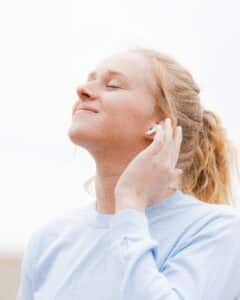DO YOU LOVE ME?
Has your partner felt unloved by you, even though you are deeply devoted to and in love with your partner? Have you felt unloved by your partner even though your partner declares his or her unending love for you?
How is it that two people who “love” each other can’t seem to experience this love they declare for one another? How is it that people who were at one point madly in love with each other “fall out of love” with one another?
With Valentine’s Day on the way, we offer advice from Dr. Gary Chapman, who says the answer to those questions might be as simple as speaking the same “love language.”
In his New York Times’ best-selling book “The Five Love Languages – The Secret to Love That Lasts,” Dr. Chapman suggests that each person expresses and experiences love differently. He calls this expression of love a person’s individual “Love Language.” Dr. Chapman explains that by understanding your own unique love language and that of your partner’s is key to a meaningful and healthy relationship.
What’s your love language?
Words of Affirmation
Do kind words make you feel special? Do words and reassurance and compliments from your partner speak directly to your heart? If so, then “Words of Affirmation” is your love language. When your partner builds you up, makes you feel worthy, proud and all-around lovely, if “Words of Affirmation” is your love language, you probably feel quite loved by your partner.
Time Spent
Do you crave spending time together with your partner? Even if it is just going for a ride in the car or a conversation at the kitchen table? If so, “Time Spent” is your love language. Spending quality time together and having your partner’s undivided attention – when he’s not looking at his phone or checking the sports scores – makes you feel on top of the world. His world. Present and important. Loved.
Receiving Gifts
Does receiving a gift speak to your heart? Does knowing that your partner spent time thinking of you make you feel cared for and loved? If so, “Receiving Gifts” is your love language. You can’t buy love, but the act of gift giving makes you feel special, extra important and the center of your partner’s world.
Physical Touch
The act of touching another person – feeling the warmth of their hand in yours or the strength of their arms around you – is another one of Dr. Chapman’s love languages. “Physical Touch,” whether it is holding hands, kissing, sitting next to each other on the couch or even just a simple squeeze on the arm, expresses safety, comfort and acceptance, and, for some, is an expression of love.
Acts of Service
For people whose love language is “Acts of Service,” anything that your partner does willingly to ease your workload is a sign of love to you. You feel cared for when your partner vacuums before you get to it, takes your car through the car wash or makes you breakfast as a surprise.
Knowing what makes you feel loved and what makes your partner feel loved is important in a healthy and growing relationship. Far too often, couples experience emotional emptiness when love DOES exist. The problem is the love is just not expressed in a way that is meaningful to the other person.
If your partner thrives on acts of service and you come home with a thoughtful gift for your partner, he/she might not think much of your gift and just toss it aside. And that says to you, “I don’t love you.”
Or if you feel most loved when you spend quality time together and your partner comes home late from work every night and is not around on the weekends, yet does the dishes and vacuums the floors, you might not be loving in the same language.
It’s important to understand what love language you speak and what love language your partner speaks. Learning to speak your partner’s love language and to understand your own will open a whole new world and will lead to deeper understanding and intimacy.
If you’re not sure what love language you speak, take the quiz and find out! It only takes a few minutes.
Then go a step further and read the book, “The Five Love Languages” which can be purchased on Amazon to take a deeper dive into the languages of love.
People in recovery and/or those who suffer from mental health disorders often have a difficult time expressing their love for one another, which is crucial in forming and maintaining healthy relationships. Water Gap Wellness is a mental health and substance use treatment center located in East Stroudsburg and Delaware Water Gap, Pa. Our holistic approach to wellness offers an on-site psychiatrist daily, two private sessions weekly and group sessions daily. Our property is located on 130+ acres of manicured property and is adjacent to the Appalachian Trail. A perfect sanctuary.
If you or someone you know needs help with a substance use disorder or a mental health diagnosis, call us today at 1-833-949-4673. Admissions counselors are standing by to help.



